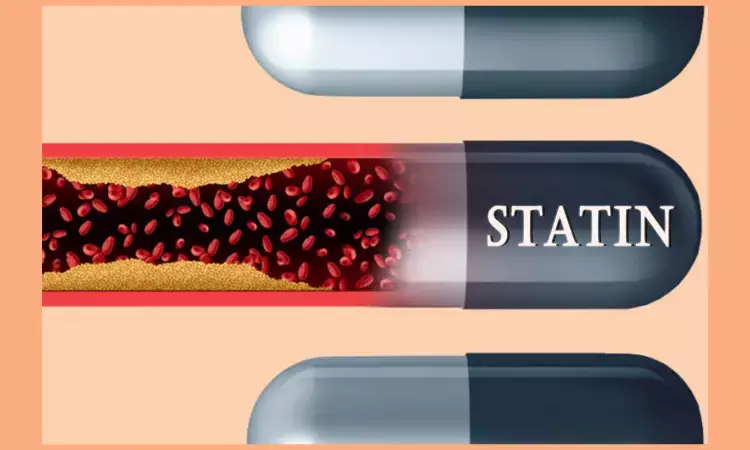- Home
- Medical news & Guidelines
- Anesthesiology
- Cardiology and CTVS
- Critical Care
- Dentistry
- Dermatology
- Diabetes and Endocrinology
- ENT
- Gastroenterology
- Medicine
- Nephrology
- Neurology
- Obstretics-Gynaecology
- Oncology
- Ophthalmology
- Orthopaedics
- Pediatrics-Neonatology
- Psychiatry
- Pulmonology
- Radiology
- Surgery
- Urology
- Laboratory Medicine
- Diet
- Nursing
- Paramedical
- Physiotherapy
- Health news
- Fact Check
- Bone Health Fact Check
- Brain Health Fact Check
- Cancer Related Fact Check
- Child Care Fact Check
- Dental and oral health fact check
- Diabetes and metabolic health fact check
- Diet and Nutrition Fact Check
- Eye and ENT Care Fact Check
- Fitness fact check
- Gut health fact check
- Heart health fact check
- Kidney health fact check
- Medical education fact check
- Men's health fact check
- Respiratory fact check
- Skin and hair care fact check
- Vaccine and Immunization fact check
- Women's health fact check
- AYUSH
- State News
- Andaman and Nicobar Islands
- Andhra Pradesh
- Arunachal Pradesh
- Assam
- Bihar
- Chandigarh
- Chattisgarh
- Dadra and Nagar Haveli
- Daman and Diu
- Delhi
- Goa
- Gujarat
- Haryana
- Himachal Pradesh
- Jammu & Kashmir
- Jharkhand
- Karnataka
- Kerala
- Ladakh
- Lakshadweep
- Madhya Pradesh
- Maharashtra
- Manipur
- Meghalaya
- Mizoram
- Nagaland
- Odisha
- Puducherry
- Punjab
- Rajasthan
- Sikkim
- Tamil Nadu
- Telangana
- Tripura
- Uttar Pradesh
- Uttrakhand
- West Bengal
- Medical Education
- Industry
Statins most appropriate for elderly with life-expectancy more than 2.5 years: JAMA

Researchers have found that statin medications for the primary prevention of cardiovascular events may reduce cardiac events for some adults aged 50 to 75 years with a life expectancy of at least 2.5 years, according to a recent study published in the JAMA Internal Medicine Network.
Guidelines recommend targeting preventive interventions toward older adults whose life expectancy is greater than the intervention's time to benefit (TTB). The TTB for statin therapy is unknown.
Hence, Lindsey C. Yourman and associates from the Division of Geriatrics and Gerontology, School of Medicine, University of California, San Diego carried out this study with the main objective to conduct a survival meta-analysis of randomized clinical trials of statins to determine the TTB for prevention of a first major adverse cardiovascular event (MACE) in adults aged 50 to 75 years.
The authors studied a total of 65 383 adults (66.3% men) with the mean age ranging from 55 to 69 years old and the mean length of follow-up ranged from 2 to 6 years.
The primary outcome was time to ARR thresholds (0.002, 0.005, and 0.010) for the first MACE, as defined by each trial. There were broad similarities in the definition of MACE across trials, with all trials including myocardial infarction and cardiovascular mortality.
Eight randomized clinical trials were conducted, and the following key findings were highlighted-
- Only 1 of 8 studies showed that statins decreased all-cause mortality.
- The meta-analysis results suggested that 2.5 (95% CI, 1.7-3.4) years were needed to avoid 1 MACE for 100 patients treated with a statin.
- To prevent 1 MACE for 200 patients treated (ARR = 0.005), the TTB was 1.3 (95% CI, 1.0-1.7) years, whereas the TTB to avoid 1 MACE for 500 patients treated (ARR = 0.002) was 0.8 (95% CI, 0.5-1.0) years.
Therefore, "These findings suggest that treating 100 adults (aged 50-75 years) without known cardiovascular disease with a statin for 2.5 years prevented 1 MACE in 1 adult. Statins may help to prevent the first MACE in adults aged 50 to 75 years old if they have a life expectancy of at least 2.5 years. There is no evidence of a mortality benefit", the authors concluded.
Dr. Nandita Mohan is a practicing pediatric dentist with more than 5 years of clinical work experience. Along with this, she is equally interested in keeping herself up to date about the latest developments in the field of medicine and dentistry which is the driving force for her to be in association with Medical Dialogues. She also has her name attached with many publications; both national and international. She has pursued her BDS from Rajiv Gandhi University of Health Sciences, Bangalore and later went to enter her dream specialty (MDS) in the Department of Pedodontics and Preventive Dentistry from Pt. B.D. Sharma University of Health Sciences. Through all the years of experience, her core interest in learning something new has never stopped. She can be contacted at editorial@medicaldialogues.in. Contact no. 011-43720751
Dr Kamal Kant Kohli-MBBS, DTCD- a chest specialist with more than 30 years of practice and a flair for writing clinical articles, Dr Kamal Kant Kohli joined Medical Dialogues as a Chief Editor of Medical News. Besides writing articles, as an editor, he proofreads and verifies all the medical content published on Medical Dialogues including those coming from journals, studies,medical conferences,guidelines etc. Email: drkohli@medicaldialogues.in. Contact no. 011-43720751


